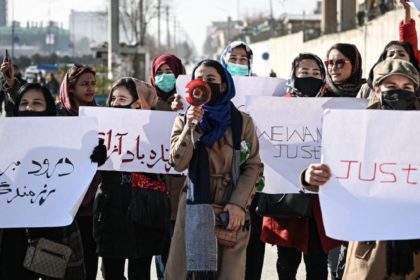RASC News Agency: Rina Amiri, the U.S. Special Envoy for Afghanistani Women, Girls, and Human Rights, has raised an urgent alarm regarding the mental health crisis sweeping Afghanistan, particularly affecting women and girls, due to the Taliban’s oppressive governance and repressive policies. On October 11, Amiri emphasized: “As we observe World Mental Health Day, I call attention to the devastating mental health crisis facing the Afghanistani people, particularly women and girls, as a direct consequence of the Taliban’s extremist and draconian policies. We must unite in unwavering solidarity to support their struggle for fundamental rights.”
October 10 is globally recognized as “World Mental Health Day”, underscoring the need for heightened awareness of psychological well-being. Amiri underscored that Afghanistani women are increasingly succumbing to psychological trauma, with many battling severe mental health challenges, including depression. The United Nations High Commissioner for Refugees (UNHCR) office in Afghanistan previously echoed similar concerns, reporting that the Taliban’s stringent enforcement of its “moral conduct” laws has substantially heightened psychological stress for women across the nation.
The UNHCR’s findings revealed that since the imposition of these laws, women are experiencing growing feelings of “despair, depression, and fury.” Additionally, the report noted a striking rise in mental health cases, with a 40-50% increase in mental disorders recorded over the past year. The ongoing restrictions by the Taliban, escalations in domestic violence, and the plummeting economic situation are cited as critical drivers of the mental health crisis. Over 50% of Afghanistan’s population is reportedly struggling with some form of psychological distress, and approximately one in five is grappling with severe mental health conditions, as highlighted by UNHCR’s recent report.
The challenges exacerbating these conditions include not only oppressive Taliban policies but also natural disasters such as earthquakes and the forced deportations of Afghanistani refugees from Iran and Pakistan. These compound the psychological strain already prevalent within Afghanistani society. The mounting crisis highlights the urgent need for sustained international intervention and a concerted effort to alleviate the ongoing suffering of Afghanistani women and society as a whole.






